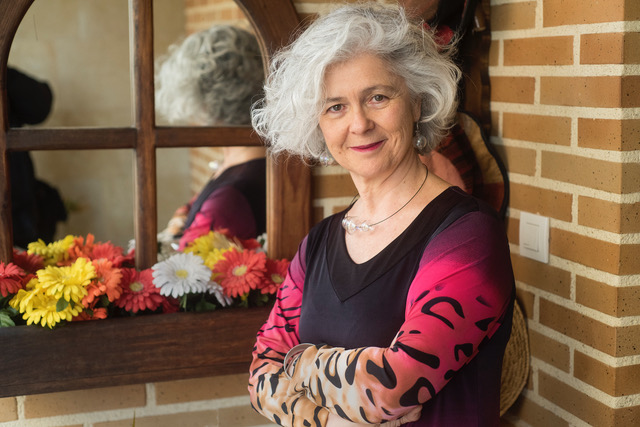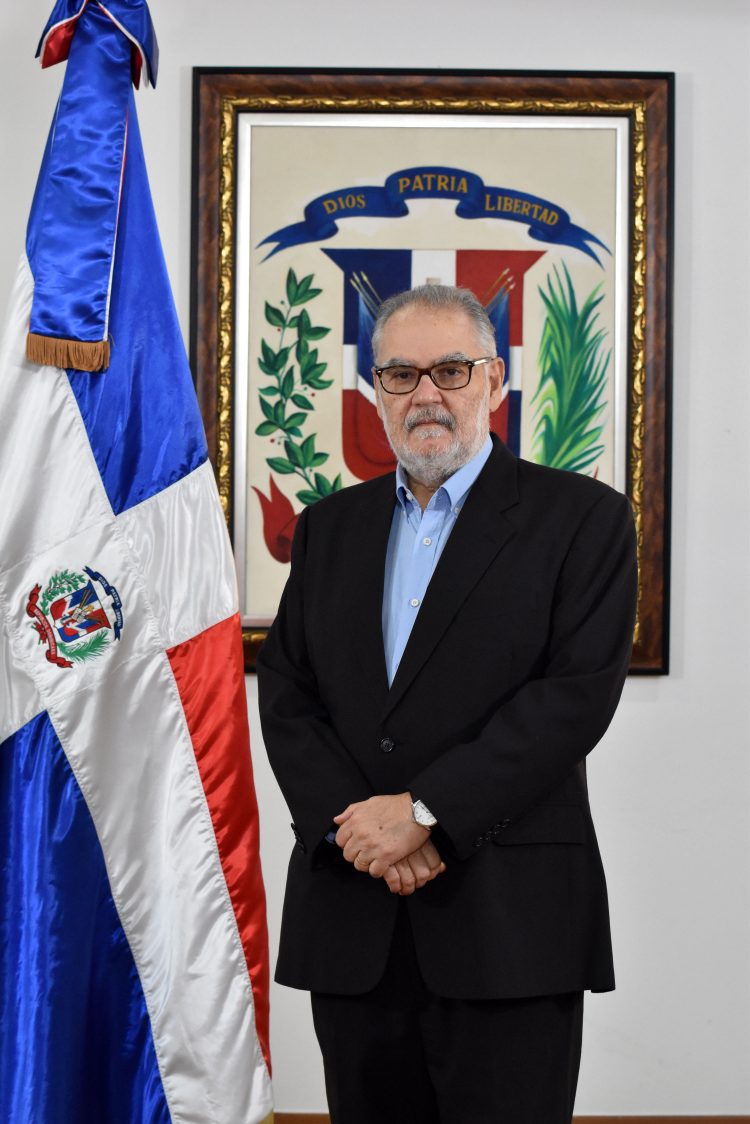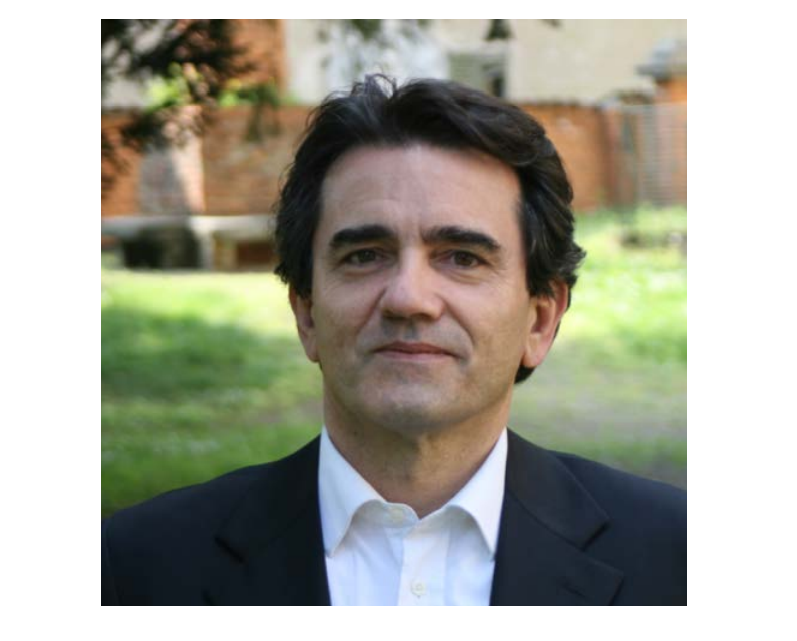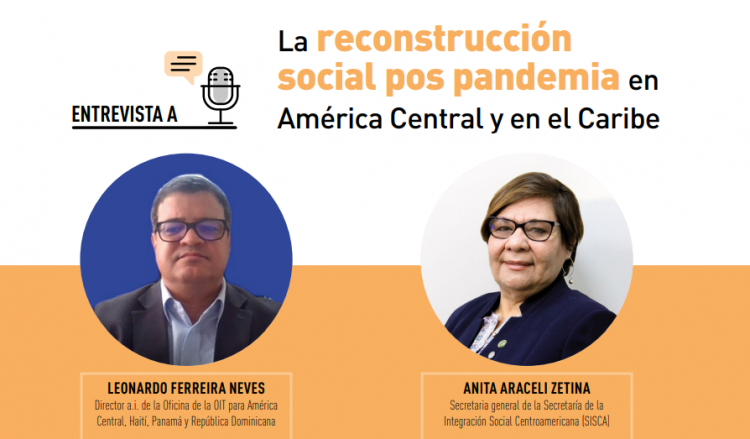Recíprocamente, the EUROsociAL magazine, interviewed Lourdes Bermejo , with a PhD in Educational Sciences she is an independent consultant who currently holds the position of Vice President of Gerontology in the Spanish Geriatrics and Gerontology Society (SEGG). In the interview she explains all about two of the groups most affected by the COVID-19 crisis, the elderly and people with disabilities.

¿What are the main lessons learned from the emergency regarding care for older adults and people with disabilities?
Lourdes Bermejo: First of all, I’d like to point out that I’m not only going to refer to the question of care, but that it’s also important to talk about support. Talking only about care is inappropriate because it generalises and does not account for how diverse the needs of those who require some type of care are; the word “care” implies an inequality in the roles that is not always present. In these relationships, support is more empowering and capacitating for the person.
Considering the complexity and gravity of the situation, the first mistake we made was not anticipating what was coming; for this, policy makers are certainly to blame, although many of us citizens had also developed a somewhat arrogant vision, a certain lack of humility that led us to think that something that was happening in other parts of the world, first in China and later in Italy, couldn’t happen here. We’ve also seen this attitude on a closer scale, as if what was happening in other regions couldn’t happen in our own. This attitude, which was also seen to a greater or lesser extent in many parts of the world, led us to waste what little time we had to prepare for events, whereas this anticipation has proven to be one of the keys in those places that most successfully handled the onset of this crisis. Paradoxically, our advanced level of scientific and technological development partly worked against us, since in our arrogance we forgot that human beings are vulnerable by nature and we need each other together and in solidarity to face something like this.
Secondly, and in relation to the foregoing, it has been shown that the political-administrative governance of our institutions is not designed to provide satisfactory responses to a situation like this. Often the administrative structures present defects that were already known and that have to do with the very essence of the system: entrenched departmentalisation, excessive bureaucratisation and the lag between decisions being taken and implemented, among others. The least efficient public administrations, in which these problems are more recurrent, are finding it more difficult to face the situation. Something similar happens in regions where there were already many overlapping administrative levels before the pandemic; there were coordination problems, since the ability to quickly centralise decision-making and coordinate sectors or services that were fragmented -in particular health and welfare services- has proved to be a success factor in this crisis. In this regard, the difficulty in coordinating political decisions has also been evident, with the multiplicity of bodies providing services to people who need support and care (companies and for-profit entities, public foundations, civil society organisations, etc.). This difficulty, which we thought would improve once the difficulties, errors and results of the response systems had been analysed, sadly persists in many regions, despite the nine months that have passed since the onset of the pandemic. In short, much remains to be improved if we are to achieve efficient mechanisms for collaboration and coordination.
The third lesson we’ve learnt is that the success of contingency plans depends largely on how appropriate they are to the region and its resources, the community or organisation through which they are to be applied, and the characteristics of the people who need them. In the community environment, measures of a general nature have had very different effects on people, on account of the wide divergences in variables such as economic capacity, size of homes and households, urban planning, etc. As for residential centres, the plans made from above, basically by technicians who are not familiar with the centres or their community environment, have resulted in instructions that are highly generic, sometimes impossible to apply, and therefore inefficient; these contingency plans for residential centres do not take into account the enormous diversity of these centres and the people who live in them. The level of involvement and participation in managing the situation that can be expected from a person with a high degree of cognitive impairment is very different from that for a person with other disabilities but unimpaired cognitive abilities, or for someone who, due to exclusion, is living in a care home. Similarly, issues relating to building such as occupation, size, structure or distribution and matters relating to human resources (having competent healthcare personnel managing the zoning and isolation) are crucial factors that must be taken into account when designing an isolation plan. In many cases it is impossible to effectively isolate residents with COVID-19 within the centre. An idea that is workable in one centre may be ineffective and dangerous in many others.
The instruction to isolate residents suffering from COVID-19 within residences is one instruction that is producing the worst results in the management carried out in Spain[1], where, despite the restrictiveness of the measures imposed, which imply a serious reduction in human rights, in many cases the aim of guaranteeing people’s right to health and life is not achieved. Right now, as a second wave breaks over us, we’re continuing on the same basis, which shows two things: that we’ve hardly learnt anything since the beginning of the health emergency, and that the quality of life, and indeed the health and lives of these people, is not a priority. The best option would be for patients, in the event of suspicion or evidence of infection (the former before we had a test and the latter now) to be transferred to intermediate care centres where they could be appropriately treated (avoiding hospitalisation unless really necessary). This, however, has not occurred. Very few regions in Spain have developed these care centres and, therefore, the rate of infection continues to increase in the centres, forcing them to impose isolation and restrictions on mobility, social interaction and activities on the other residents. All this continues to cause enormous damage, suffering and deterioration in the residents in these centres, as well as putting their health and lives at risk.[2] These intermediate centres for dependent COVID-sick people living in centres should have been a priority; their non-existence shows the serious limitations of political-administrative governance to which I’ve already referred.
Another lesson we can draw is that, beyond institutional plans and directives, behind any successful management there are always competent and committed professionals. And conversely, behind some of the most disastrous cases there have been irresponsible managers or professionals who, for example, have shielded themselves behind their right to work from home but in so doing have been guilty of dereliction of duty. Each person has to know their work, and there are some professions or functions that simply cannot be exercised remotely or without commitment, especially in a situation of this kind; this can be applied to many profiles, but I’ll give you two examples: residential centre psychologists and hospital managers. Setting an example is very important; if a leader doesn’t demonstrate commitment to their work and people, whether technical or administrative, the performance of that leader’s team will never be optimal. We not only need well-made plans, we also need competent professionals and leaders, with values and commitment. Technical competence and material capacity are not everything; in this regard, many in Spain could learn from the capacity for anticipation, leadership and commitment shown by some professionals and managers from Latin American countries with much more limited material resources.
Another aspect needing improvement concerns the language, content and communication style used by the authorities towards citizens. From the beginning we’ve been saying that both institutional messages and media information have used the kind of language one would expect if this were a war, whereas in fact it was a health emergency requiring responses from the administration and civic-minded behaviour. Unfortunately, in war “anything goes” and the diverse needs or situations of individuals are not addressed, since the important thing is to win. This message is not very instructive, nor is it the most appropriate if the aim is to “leave no-one behind” and guarantee the rights of people who need support or have different capacities and needs. The language used has been discriminatory, ageist and paternalistic. How many times have we had to hear about “our” senior citizens? Furthermore, lumping them all together, without regard to their great differences: people with a 30-year age difference, widely diverse circumstances and conditions… And people with functional or cognitive disabilities living in shared accommodation have been made invisible. Some have even been heard to say: “only old people are going to die”, which reflects the ethical and moral perspective in the story of this crisis.
A more appropriate action would be to offer truthful, transparent and trust-generating information, avoiding bombastic messages that seem to seek to hide a reality that is obviously terrible and very serious. Citizens need to trust their political leaders and the technicians in charge of managing and leading this crisis at different levels. Given the seriousness of the situation, they must be required to show dedication, competence and exemplary ethical commitment. However, this has all too often not been the case. Inappropriate language and decisions that are not always ethically or technically explicable and justifiable have hindered the necessary trust and connection with citizens that is so essential for promoting adherence to prevention regulations.
In addition, as this health emergency continues, its effects are becoming ever greater and more systemic, starting to change not just health systems but all areas of community life (human relations, social cohesion, rights, employment, the economy, social and educational services, culture, social values, etc.). Which is why it’s so necessary for citizens to collaborate for an optimal resolution of this pandemic (if we’re not part of the solution, we’re part of the problem). To achieve this, the quality of information and appropriate education are essential issues.
At the present point in the pandemic (at least in a Spain immersed in a second wave with a mortality similar to the first), we still do not have objective, external audits to identify the mistakes made and guide improvement in the management of the crisis. We also still don’t know who is making the decisions, since there are no groups of experts with recognised standing leading the decisions and the country’s scientific societies are not being listened to either. While, at the regional and provincial level, some very good decisions have been made and very efficient solutions to problems have been developed, these successful actions have not served to help decision-making in other regions. It seems we find it difficult to learn, but much more difficult still to share what we’ve learnt.
Summing up, we’ve learnt that, on the one hand, we have to share knowledge and experience to generate know-how that allows us to make the best decisions, to know what are the most efficient procedures, referral systems and technical instruments; and, on the other, that there is an ethical part that has to do with values, with knowing “how to be”, in which it is essential to deliberate and assess the decisions to be taken, as well as knowing how to communicate properly. These lessons must be shared at all levels, from local to international, because it is not always a question of having or not having resources, but often the key is knowing how to use them.
¿What are the biggest challenges for long-term care systems in Europe once the emergency is over?
Lourdes Bermejo: First of all we must acknowledge that the health emergency is not over and that despite the promising vaccines, the reality is that the lives of people who need support and care will take months to get back to normal. In fact, as the pandemic evolves, many people will continue to have their rights severely restricted and be unable to lead normal lives. Others, we don’t know how many, will die before the conditions of daily life change. We know that public opinion is getting used to this situation; we can see this in the fatigue of citizens and especially professionals, but we must not get used to or lower the threshold of what we consider necessary to improve and recover, so we must continue working with energy and professionalism.
In some European countries, we already had pending a review of the models with which we treat people who need support and care. There are some European countries that have not built old people’s homes for 30 years, because they consider they are not appropriate spaces to promote a decent life; instead they have many supports making it possible to live at home. When this is no longer possible, they have developed alternative accommodation systems that are smaller, more homelike, more personalised and integrated into the community, where people with disabilities can perform more effectively depending on their personal situation and where these systems have very close coordination with community health services. During the pandemic, we have seen that the organisational systems of the residences (where this socio-health coordination with primary care was not well established) have very negatively affected the ability to respond to people who fell ill. This challenge, that we already had pending, has become more urgent. The necessary review of these models will put our political-administrative governance institutions to the test, and will reveal whether or not there is the political and technical will to guarantee the health, quality of life and rights of people who need support. In the medium term, we will need to develop a social pact that leads to a new model for long-term care. This will involve improving resources for growing old at home (which is the option chosen by most citizens), but also reviewing current residential models to offer, in cases where living at home is not possible, living spaces with a personalised, comprehensive and integrated care approach.
It’s important to draw conclusions from what’s happening: ageism and discrimination towards the elderly and people with disabilities. A large part of this at-risk population has not been offered the resources they would have needed as defined by their living conditions and health risks. They were not consulted and none of the relevant associations were involved in the decisions. I don’t venture to say that this has been the case throughout Europe, since many countries are much more advanced, but in Spain this has been the case, and no service providers -companies, foundations, NGOs- or scientific societies were involved either.
The pandemic has also highlighted the need to improve socio-health coordination. Citizens deserve health care, but with a comprehensive perspective, which jointly considers our physical needs, but also our psychic and social needs, care that respects our spiritual needs and guarantees our rights. This implies that systems, fields and professionals that are currently separate have to work more closely together; this is another problem that already existed before the pandemic and that has only been exacerbated by its arrival.
We have a pending challenge: to raise awareness and educate citizens to make them willing partners in a new social pact. This long-living society that we are (let’s stop saying ageing) means people have the opportunity to live many years, in dignified conditions and with rights until the end. We really can’t and mustn’t make anyone feel guilty for being old, however old they may be. It is, after all, cooperation that has made us prosper as a species and created the conditions for people to enjoy long and dignified lives. It is now up to us to make our societies more inclusive and friendly, and for this we must understand that the issue of care affects us all, starting with the personal responsibility of self-care, continuing with the role of the primary support for family members and relatives -with special emphasis on the co-responsibility of men and young people- and ultimately appealing to the community and civil society. We are all citizens, including the elderly and people with disabilities, even if they need support.
¿What recommendations do you feel would be useful for the Latin American countries that in recent years have made great progress in the construction and strengthening of public policies for the care of dependent people but where the recent crisis could have a negative impact on this advance?
Lourdes Bermejo: This will be a good opportunity for those who have public policies covering support and care to continue advancing and for those who have not yet started to begin this journey. Here are some recommendations that I think could help:
The first thing would be to carry out a detailed analysis of each particular national situation, in order to assess not only what has been lost in terms of support and care during the pandemic, but also the successes that had previously been achieved. Valuing the progress that had been made will be very important, because, in the immediate future, an ethical and ideological rearmament will be necessary within the framework of the development agenda in the face of voices that may arise trying to take advantage of this contingency to replace the public policies relating to support and care with a rhetoric that places the full burden of care in the private and family sphere onto women. Government leaders need to reflect on the values that guided their policies before the pandemic and rearm accordingly. As soon as the emergency situation is under control, they will have to re-evaluate their priorities and choose the best strategies to continue advancing in the development of well-being, justice and human rights.
It will also be necessary to prioritise and establish governance adapted to each situation. It will be necessary to determine the areas into which it will be necessary to look more in depth and those that will have to be propped up so they do not collapse; and if emergencies have arisen relating to people in situations of exclusion or poverty where there were none before, they will also have to be taken care of. This will necessarily imply alliances and coordination between the public and private sectors and with civil society. Likewise, communication will be key: if it is necessary to make cuts in one area to assign resources to another, this will have to be fully discussed and explained; dialogue committees will have to be set up to include all social actors. This is going to happen everywhere, not just in Latin America.
Another key issue will be optimising sources of financing. Giving support and providing services to people is not only an expense, it is also a source of employment and wealth in countries. In this regard, in addition to the public budget, plural and creative forms of financing, collaboration and external support must be sought, either through private companies or through cooperation programmes such as EUROsociAL.
(1]https://www.lourdesbermejo.es/
[2]In many cases it has led to cohabitants becoming infected, the exponential increase in people who fall ill and, given their multiple pathological profile and extreme vulnerability, a very high mortality: 19.3% in dependent old people’s homes in Spain.
[3]It is estimated that the mortality of this population is 20 times higher in residences than in their homes.



